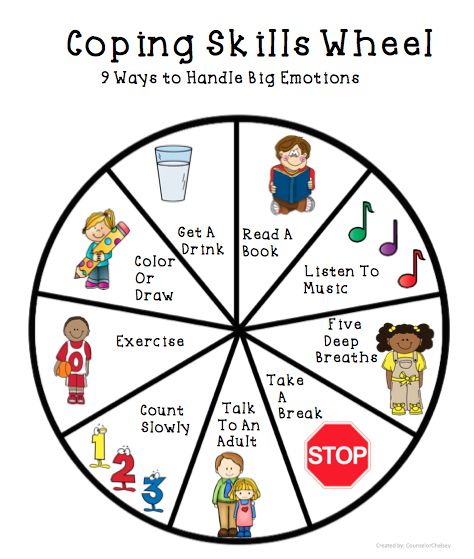As young children are learning to communicate their thoughts and feelings, they can become overwhelmed by emotions such as anger, sadness, and disappointment. It can be challenging for children to resolve big emotions, and this challenge may be displayed through their behaviors and physical symptoms. Supporting your child’s emerging coping strategies will increase their ability to use those strategies independently to regulate their emotions.
For example, Jason has a spelling test tomorrow that he is anxious about and he is unable to fall asleep. He is also complaining of a stomachache, and he is becoming increasingly upset. His father suggests practicing a deep breathing exercise together. He asks Jason to lie on his back so he is comfortable and place one hand on his stomach. If Jason breathes deeply enough, he should be able to feel his hand rise and fall with each breath. Next, Jason’s father asks him to breathe in slowly through his nose for 4 seconds. Then breathe slowly out through his mouth for 6 seconds. They repeat this exercise for 2 minutes, and his father asks Jason how he is feeling.
Your child may already know what helps them relax when they are having a bad day, and you can start by making a list of their preferred strategies. If they are struggling to identify strategies, ask what activities make them feel good, calm, or happy. Practicing the strategies while your child is calm is key to them being able to use the strategies when they are upset. When you observe your child becoming upset, you can be their inner voice by identifying their feelings and suggesting a preferred coping strategy. Once they have calmed down, recognize their use of the strategy to regulate their feelings.
These anger management skill cards can add to your child’s growing set of coping strategies!

Leave a Reply